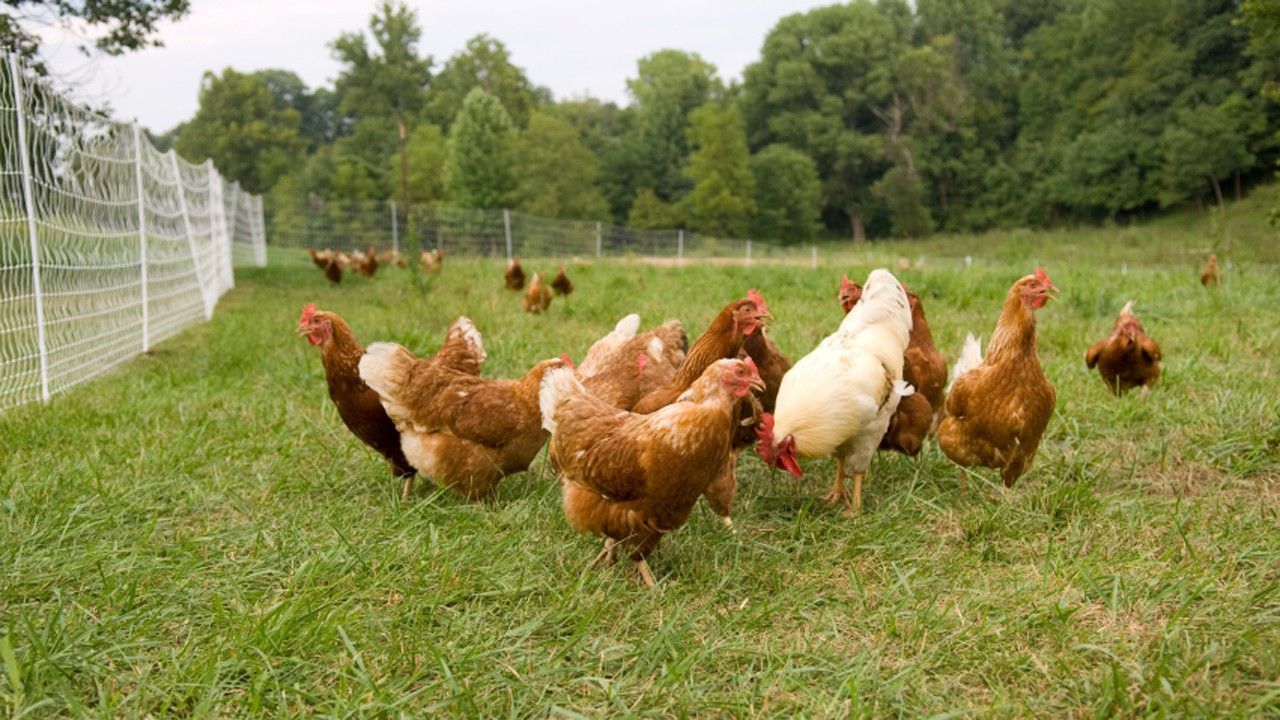
More and more eggs at markets have the label “cage free” stamped on their carton. This sounds good, but what does the label actually mean?
“Cage free” marked on a carton of eggs simply means the hens laying those eggs are not kept in cages. Again, that sounds good but the label has a fairly limited legal definition and the practices of some farmers only following the letter of the law making more complicated than you might think.
The Basics
In theory, the hens that lay eggs labeled “cage free” are free to walk around the hen house, to perch on roosts, and to lay eggs in nests.
This is in great contrast to most laying hens, which are kept in cages so small that they can’t fully open their wings, much less walk or move about.
The Best Case Scenario
Perhaps the eggs labeled “cage free” may have “free range” on them and come from hens that were allowed outside more or less at will, at least during the day. They may even have had green pasture to explore, allowing them to exhibit the natural behavior of hunting-and-pecking for seeds and insects that grow in the grass.
“Free Range”
The “free range” label requires that the hens be allowed outside. That said, the amount of time they are allowed outside and the conditions of that outside area are not defined, so it is possible that a crowded hen house would have a small door at one end leading to a small concrete space that the hens are theoretically allowed into but which in practice isn’t much of an improvement.
“Pastured”
“Pastured” has no legal definition or third-party verification, but is usually used by small farmers who raise their chickens on natural pasture, roosting in a hen house at night and roaming on pasture during the day, hunting and pecking for their food and exhibiting other natural behaviors.
The Reality
That said, “cage free” chickens are kept in hen houses, often in cramped conditions, and may or may not have access to the outdoors or pasture. Without other or further labels explaining how the hens who laid the eggs were raised, “cage free” is better than nothing, and are a solidly better choice than most commercial/industrial eggs, but they are not the gold standard.
Why Egg Labels Matter
For those looking for the best quality eggs from hens allowed to exhibit natural behaviors, pastured eggs from hens raised by small farmers who may even invite you to visit their farm, so proud are they of how they treat their animals, will prove to be a revelation. Since the hens were allowed to get some of their diets from greens and plants and insects, their yolks aren’t just yellow, but verge towards a bright, sunny, almost orange color. The whites are full-on bouncy. They have an intense eggy flavor and color that makes any egg dish, even a humble soft-boiled or hard-boiled egg, shine.
At the very least, getting “cage free” eggs means you’ve avoided supporting the worst of the egg industry’s all too common practices.
